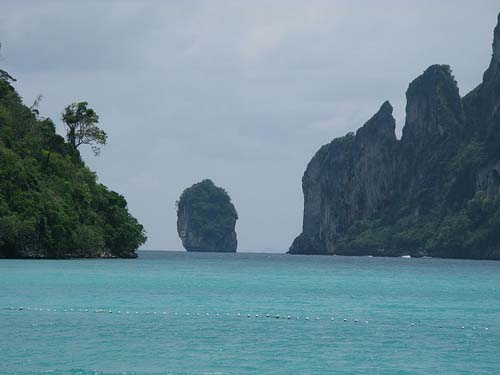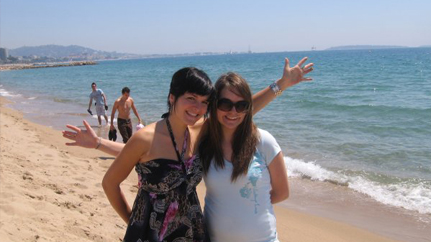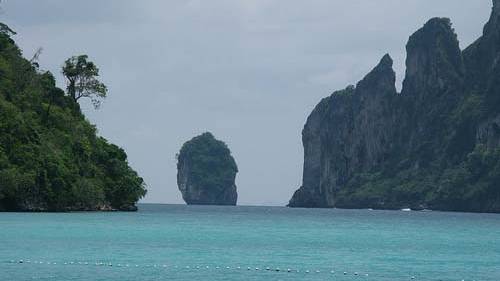The Strange Deaths of Two Sisters in Thailand

The Phi Phi Islands sit off the western coast of Thailand, floating like jewels in a turquoise sea, a picture-perfect image of a tropical getaway. Director Danny Boyle filmed his 2000 psychothriller, The Beach, on the largest of those islands and if you know the movie, you know, despite the gem-like setting the story ends badly.
They say, though, that the movie put the largest of the islands, Ko Phi Phi Don, on the map as a tourist getaway, a reasonably priced home to glittering beaches and unlimited partying. And that’s undoubtedly what drew two young sisters from a small Canadian village, just north of the Maine border, to travel there for a summer break from their university studies.
 Audrey and Noemi Belanger |
Noemi Belanger was 26 and her sister, Audrey, 20, when they planned the June vacation. Both sisters lived in their hometown of Pohenegamook, Quebec. Did I mention that it was small, the kind of place where people know each other, stay close? The population is about 3,000 and both girls worked for their father, Carl, in his grocery store before starting university classes. They were happy girls, friendly, residents say, involved in their community, helping out at the local library, at public beaches.
This summer, they were ready to fly a little, indulge in a splashy vacation. So they saved their money and flew to Thailand in June, went to visit the Phi Phi Islands. And there, as a flood of mid-June news stories made obvious, things went very wrong. Very, very wrong.
The stories were puzzled, horrified. A story in Canada’s National Post described a hotel maid finding the sisters dead in their room, with lesions tracked across their bodies, their fingernails and toenails turned an odd grayish blue. They were huddled in their beds, relayed the Global Post, smeared with vomit and blood.
Rumors flew of an exotic poison, of a lurking killer. Dismissive statements from the police added to the sense of mystery. “We found many kinds of over-the-counter-drugs, including ibuprofen, which can cause serious effects on the stomach,” one investigator said, sounding as if packing painkillers was the real problem. Mysterious poison deaths of tourists visiting the Phi Phi Islands were recalled: the 2009 death of a Seattle woman, still unsolved today. The similar and also unexplained death of a 22-year-old woman from Norway the same year. An odd cluster of deaths in another Thai city during winter of last year, including a 23-year-old woman from New Zealand. The conspiracy theories expanded to include the unexplained deaths of two young women in Vietnam this summer. “Is this a cover-up?” asked a letter writer in the Bangkok Post after the police went on from the ibuprofen theory to one that involved food poisoning.
And not just any food poisoning. A leak from the investigation suggested that detectives were considering the possibility that the sisters had dined – somewhere – on either poisonous mushrooms or blowfish, sometimes called pufferfish or fugu. The fishes are considered a delicacy but they must be carefully prepared to exclude any contact with the liver or other internal organs, which contain an exceptionally potent neurotoxin called tetrodotoxin.
Neither of these suggestions, though, were an ideal match for the described symptoms. Tetrodotoxin is most famous for its ability to induce a corpse-like paralysis in victims; they may remain alert but unable to move or communicate, gradually suffocating as the lungs fail. Poisonous mushrooms tend to kill by gradually destroying the liver. As quickly as the suggestion was floated it seemed to disappear, leaving the questions to further simmer over the summer.
[...]
Read the full article at: wired.com























